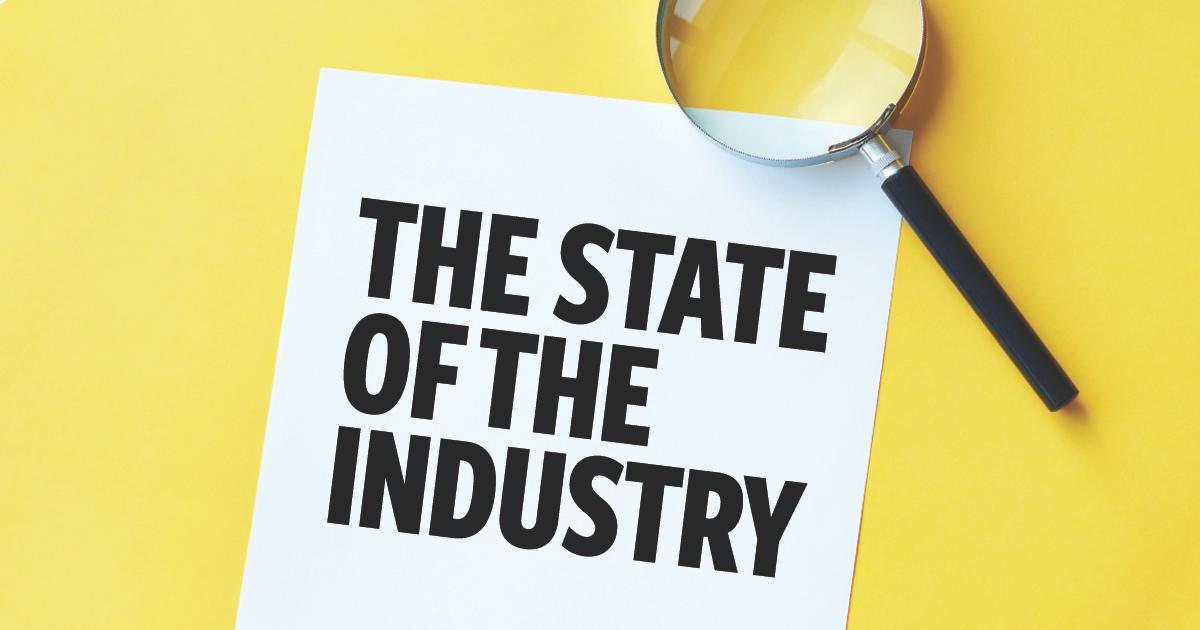Meeting pros from across the globe sound off on the issues most impacting the industry in our “State of the Industry” report. Look for a new installment each Wednesday. This week, our experts discuss commission cuts and the impact of the latest technology.
Hotel commission cuts for third-party planners are headline news these days. How can meeting planners or suppliers adapt to this changing landscape?
I realized early on as a planner that commissions likely weren’t going to be an infinitely sustainable model. It simply didn’t make good business sense to me in the long term, so I didn’t depend on commissions in my sales structure—I could not see myself depending on a third party to pay my value to my clients, because of the simple truth that people value what they pay for. It was important for me to demonstrate my value on an ongoing basis, and hold my clients accountable for paying for that service. If I took a commission, it would be “gravy.” That said, I think that planners can adapt by taking a hard look at how they will both demonstrate and communicate their value, in such a way that it compels customers to affirm their value.
Mazda T. Miles, CMM
Chief Event Strategist, Perfection Events Inc.
MPI Philadelphia Area Chapter
Years in industry: 20
The percentage of groups that use a third party today versus 10 to 15 years ago has grown exponentially, and especially since the downturn in late 2008/2009. With that, I think that third parties will look at a way to try to recoup this loss in commissions and it may be in the way of a retainer-type commitment with their clients that are asking them to do an incredible amount of work and at times for no compensation. I think the entire meeting planning community needs to become transparent so that companies that use third parties totally understand how they make their money and where that compensation comes from.
Brandon Benson
Director of National Accounts - Mid-Atlantic Territory, Memphis (Tenn.) CVB
MPI Potomac Chapter
Years in industry: 12
Meeting planners and suppliers may begin to adapt to these changes by focusing on educating the client and informing them that there is now the potential for their fees to go up since we do not have the full depth and breadth of that commission to help offset costs. One of the tools we use is Global Meetings Industry Day and the content that is collected and developed from that initiative. We also refer to the Meetings Mean Business campaign to gather data that will help showcase ROI and the value of our services to clients. The truth is that our industry is providing intangible services, so it’s about emphasizing those areas, which include strategy, performance, brand awareness and creating an elevated experience. I did not believe it could even be possible to make such sweeping changes to the landscape of commissions. Commissions are necessary for the sourcing component, as you could be researching multiple properties across various time zones before you select the perfect host site. In addition, the value also lies in the contract portion where planners are reading, studying and negotiating terms on documents that could be up to 20 pages or more. I think we as planners need to reassess what is the new norm and focus on educating our clients and current partners about the value of our industry.
Renee Radabaugh, CMP
President and CEO, Paragon Events Inc.
MPI Virginia Chapter
Years in industry: 29
In my early days of being an independent planner, when I first learned (through the MPI Independent Planners Special Interest Group) that many made much, if not all, of their money by commissions, I was pretty astounded. I thought about it as I looked at how I was going to price my new business, and struggled with it over the years. I quickly learned that there were people who did flat fees, some did commissions and others a mixture of both. There were some that also did an hourly fee. Many, many discussions were held about the ethics and the transparency of this practice. I made the decision to go with flat fee or hourly. I didn’t want to explain to my clients that I was getting commissions. I also never wanted to question myself as to whether I did the best for my client—or the best for me. The point is that a company can be restructured to a different fee system. Once clients really learn what and how they were paying to begin with, they will be open to paying in a different way—if a planner can show their worth.
Joanne Dennison, MSEd, CMP
The MeetGuide
MPI New England Chapter
Years in industry: 24
 Planners need to offer a simplified pricing structure for clients’ decision process. While changes in commission would have affected my finances in the past, they would not now. With the reduction in commissions from two hotel flags, it will certainly affect third-party professionals and, undoubtedly, the RFP stream to these hotels. How could it not? It’s surprising how these hotels seemed to have placed long-term client relationships second to this. Of course, this could all revert when we enter into a buyer’s market.
Planners need to offer a simplified pricing structure for clients’ decision process. While changes in commission would have affected my finances in the past, they would not now. With the reduction in commissions from two hotel flags, it will certainly affect third-party professionals and, undoubtedly, the RFP stream to these hotels. How could it not? It’s surprising how these hotels seemed to have placed long-term client relationships second to this. Of course, this could all revert when we enter into a buyer’s market.
Jerry G. Diaz, CMP, HMCC
Independent Meeting Manager
MPI Northern California Chapter
Years in industry: 22
 As a planner for a third-party company, I can say that the recent commission cuts have definitely been a hot topic of conversation. I know that our leadership has been working diligently to come up with solutions and strategies on how to do business in this new landscape. This news came with very little warning and now so many third-party agencies and companies with SMM programs are scrambling to revise budgets and figure out how the reduction of commissions will impact their business models. I expect more of the hotel chains to follow suit very soon, so it will be interesting to see what the future holds. April Ferguson, CMP, CMM
As a planner for a third-party company, I can say that the recent commission cuts have definitely been a hot topic of conversation. I know that our leadership has been working diligently to come up with solutions and strategies on how to do business in this new landscape. This news came with very little warning and now so many third-party agencies and companies with SMM programs are scrambling to revise budgets and figure out how the reduction of commissions will impact their business models. I expect more of the hotel chains to follow suit very soon, so it will be interesting to see what the future holds. April Ferguson, CMP, CMM
Senior Event Logistics Manager, BCD Meetings & Events
MPI Carolinas Chapter
Years in industry: 15
 The latest development is not good for the future of commissions to third-party planners. Technology has allowed the world to become much more efficient, and as such the middle players in many industries are being replaced. The meeting industry is not exempt. It will be important for independent planners to join forces with suppliers who share their feelings about the value of relationships. Those suppliers may be technology companies, platforms and startups in the space. Large networks will form on the internet that previously were formed by the largest companies in the industry. Planners may find an empathetic ear in companies such as Airbnb, Uber, Lyft and other disruptors. New relationships will form for the benefit of both sides, and industry networks will form on the internet in places such as Facebook, Instagram and other social media networks yet to be developed. Kim Estep President, Convention Nation MPI Connecticut River Valley Chapter Years in industry: 4
The latest development is not good for the future of commissions to third-party planners. Technology has allowed the world to become much more efficient, and as such the middle players in many industries are being replaced. The meeting industry is not exempt. It will be important for independent planners to join forces with suppliers who share their feelings about the value of relationships. Those suppliers may be technology companies, platforms and startups in the space. Large networks will form on the internet that previously were formed by the largest companies in the industry. Planners may find an empathetic ear in companies such as Airbnb, Uber, Lyft and other disruptors. New relationships will form for the benefit of both sides, and industry networks will form on the internet in places such as Facebook, Instagram and other social media networks yet to be developed. Kim Estep President, Convention Nation MPI Connecticut River Valley Chapter Years in industry: 4
What technological advancement is having the biggest impact on your events?
Event apps. I love being able to view content and speakers, then select and schedule sessions prior to attending a program. For example: I continue to benefit from watching speaker videos from the 2015 MPI World Education Congress, thanks in part to QuickMobile. With app technology, we can be educated from programs long after we have attended, and from the sessions we were not able to attend. That’s impact.
Jerry G. Diaz, CMP, HMCC
Independent Meeting Manager
MPI Northern California Chapter
Years in industry: 22
The Global Data Protection Regulation, which restricts our ability to market to all of our existing EMEA contacts unless we have specific opt-in permission. Data analysis is also impacting funding, as we have challenges closing the loop with our sales teams. Each meeting at an event should be recorded and linked back to the specific campaign, but data entry is typically not one of their strong points.
Deborah Stark
Marketing Manager - Americas, Charles River Development
MPI New England Chapter
Years in industry: 30+
As a meeting planner for a major technology client, I always say we have so many cool toys at our disposal that it’s hard to say which ones I like best. Currently, many of my events use Cisco Spark to build pre-event excitement, share news and encourage collaboration during the event, and send follow-up communications once the event has concluded. Event stakeholders can create a “room” dedicated to the event where communication is shared in an ongoing conversation. The program has both desktop and mobile applications, and many Cisco employees use it for daily internal communication, so utilizing Spark for events is a natural progression.
April Ferguson, CMP, CMM
Senior Event Logistics Manager, BCD Meetings & Events
MPI Carolinas Chapter
Years in industry: 15
While tech in general gets to play a bigger part of many meetings or events, I do see much that is simply “because we can” instead of “because it makes sense.” Much of what we see will disappear, I am sure. I personally see multi-hub meetings as the most influential, value-adding contribution to meetings since we multiply the outreach and possible outcomes. In addition, conversational software such as Sli.do is a brilliant way to engage the audience and make the most out of the participants’ knowledge.
Hans Ravnkjær Larsen
Founder/Director, Cheche, Meetings and Conferences With A Spark
MPI Denmark Chapter
Years in industry: 16
We are using a collection of tools, which have greatly impacted the success of our events. Registration software allows us to gather attendee data up front and utilize it to plan for the finishing touches of the current event and document their information for the future. This technology also serves as the first touch point with attendees, and we are fortunate that our products offer a seamless online and onsite experience that leaves a lasting impression. Our corporate partners are also one of our best assets as they are continuously looking for ways to measure their meeting spend and attendee or employee engagement. Exchanging ideas and discussions with them has helped shape our current processes and reporting methods. Social media is perhaps the most attainable tool at our fingertips and allows us to reach an endless number of users in an immediate timeframe. Sharing videos in real time at events, posting direct quotes from speaker presentations and implementing a social wall on site provides instant gratification to attendees and attracts others that may want to register for a future event.
Renee Radabaugh, CMP
President and CEO, Paragon Events Inc.
MPI Virginia Chapter
Years in industry: 29
The greatest innovation, so far, of the 21st century has been the connectedness of the network and people to each other via smart devices. In the 20th century, live events were held to help people network on a personal level. There was no other way to amass large groups for a common purpose or goal. But in the 21st century, it’s extremely simple to connect a global audience virtually via an online platform. Events must plan for the inefficiencies of virtual collaboration and instead capitalize on the unique opportunities afforded to people at live events. Technology must be seen as a disruptor to the status quo, but planners must not fear the consequences of its implementation. We suspect that meetings will begin to adapt to attendee preferences and suggestions, rather than being offered in a static 20th-century format. That future event environment will be developed by innovators from outside the industry. The event industry is ripe for disruption because it still operates in a 20th-century model. Planners should take heed of global technology advancements such as blockchain and crypto and they should anticipate that the technology is going to disrupt their industry.
Kim Estep
President, Convention Nation
MPI Connecticut River Valley Chapter
Years in industry: 4







